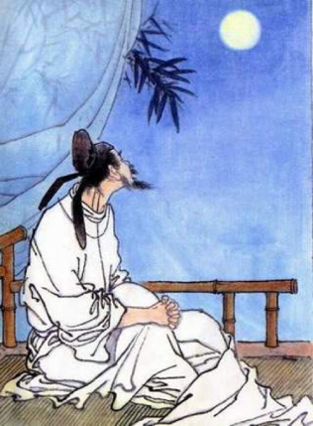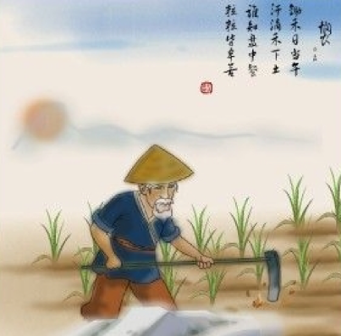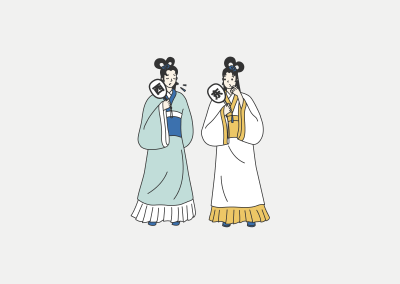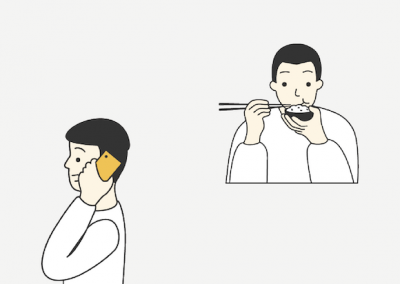3 Famous Chinese Poems All Children Learn in School
These classic Chinese poems hold deep cultural significance and have been passed down through generations. Interestingly for Chinese learners, some of these poems might feel as puzzling as Shakespeare does to modern English speakers, due to their ancient Chinese language and style.
If you’re learning Chinese, these Chinese poems for beginners are a great entry point they help with memorization, Mandarin listening and speaking skills and offer a valuable look into traditional Chinese culture and values. Let’s explore 3 Chinese poems children know across China, and poems every Mandarin learner should try memorizing.

1. 静夜思 (Jìng yè sī) – Thoughts in the Silent Night, Classic Chinese Poem Children Learn in School
This was the first Chinese poem that I learnt thanks to my online Chinese study partner, and I still remember it 3 years later. And I think it’s one of the most common Chinese poems that children know in China.
This poem is widely taught in Chinese primary schools and used in Chinese language learning to help children and Mandarin learners improve reading comprehension, tone pronunciation and understand Chinese cultural values.
床前明月光,
Chuáng qián míng yuè guāng,
疑是地上霜。
Yí shì dì shàng shuāng.
举头望明月,
Jǔ tóu wàng míng yuè,
低头思故乡。
Dī tóu sī gù xiāng.
English Translation:
Moonlight reflects off the front of my bed.
Could it actually be the frost on the ground?
I look up to view the bright moon,
And look down to reminisce about my hometown.
2. 七步诗 (Qībùshī) – Seven Steps Verse, A Classic Chinese Poem with a Powerful Lesson
“Seven Steps Verse” was created during the Three Kingdoms period (220 – 280 AD) by 曹植 (Cáozhí). Meaning that this poem is very old. Legend has it, 曹植’s cruel older brother who was emperor at the time. He was jealous of his younger brother’s intelligence and talent. The emperor forced the younger brother to create a poem within seven steps. If he couldn’t, then he would be given the death penalty.
The poor younger brother knew of the older brother’s intentions. And created this poem to appeal to the older brother’s sense of guilt. Of the famous Chinese poems children know, this is one of the most interesting and heartwarming.
This poem is deeply symbolic. It uses beans and stalks as metaphors for family conflict and betrayal. A powerful message wrapped in a short and elegant verse. Many Chinese children learn this poem as part of their early cultural education because of its emotional depth and important life lesson.
煮豆燃豆萁,
Zhǔ dòu rán dòu qí
豆在釜中泣。
Dòu zài fǔ zhōng qì.
本自同根生,
Běn zì tóng gēn shēng,
相煎何太急。
Xiāng jiān hé tài jí.
English Translation:
Lighting the bean stalk to boil the beans,
and of this the beans thus wailed:
“Borne are we of the same root;
should you now burn me with such disregard?”

悯农 (Mǐn Nóng) – Toiling Farmers, A Famous Chinese Poem Children Learn About Hard Work & Gratitude
‘Toiling Farmers’ was written by Tang Dynasty poet 李绅 (Lǐ shēn) to reflect the grueling working life of a farmer. The first two lines describe how the farmer toils with the hot noon sun bearing down on him. He is essentially watering the crops with his sweat. The last two lines relates the farmer’s hard work with the food in people’s bowl. And that every grain of rice comes at the expense of hard labor.
Interestingly, in present day, of the Chinese poems children know this is often used at the dinner table. By Chinese parents in to educate their children about not wasting food.
This poem is deeply embedded in Chinese culture often used to instill values such as respect for farmers diligence and gratitude. For Chinese learners this is a great beginner poem to understand basic Chinese vocabulary, classical structure and cultural values. It’s often included in Chinese textbooks for kids and frequently referenced in Chinese primary schools.
锄禾日当午,
Chú hé rì dāng wǔ,
汗滴禾下土。
Hàn dī hé xià tǔ.
谁知盘中餐,
Shuí zhī pán zhōng cān,
粒粒皆辛苦。
Lì lì jiē xīn kǔ.
English Translation:
Farmers weeding at noon,
Sweat down the field soon.
Who knows food on a tray
Thanks to their toiling day?
Final Words: Chinese Poems for Kids & Culture Lovers
So there you have it, 3 Chinese poems children know. In addition to those featured in this post, a few other Tang Dynasty notables are 杜甫 (Dù Fǔ), 王维 (Wáng Wéi), and 岑参 (Cén Cān).
Have you heard of any of these famous Chinese poems before? Which poem, or poet is your favorite? How do they compare to Western poems?
Let us know in the comments below!
And if you’re looking for more ways to improve your Chinese, check out our post with a list of easy Chinese books that can help boost your reading skills.
FAQ: 3 Famous Chinese Poems All Children Learn in School
01. What are the 3 famous Chinese poems children learn in school?
The 3 famous Chinese poems all children learn in school are:
- 静夜思 (Thoughts in the Silent Night) by 李白 (Li Bai)
- 七步诗 (Seven Steps Verse) by 曹植 (Cao Zhi)
- 悯农 (Toiling Farmers) by 李绅 (Li Shen).
These poems are part of traditional Chinese education and help kids understand Chinese culture and language.
02. Why do Chinese children memorize classical poems?
Chinese children memorize classical poems to improve their Mandarin language skills, including pronunciation, vocabulary and rhythm. These poems also teach cultural values, history and important moral lessons, making them an essential part of Chinese language learning and education.
03. How do these poems help with learning Chinese language?
These short classical poems use simple yet expressive language, making them perfect for memorization and practice. They improve reading comprehension, speaking fluency and cultural knowledge, which are key skills for anyone learning Mandarin Chinese.
04. Are these Chinese poems suitable for beginners learning Mandarin?
Yes, these poems are ideal for beginners because they are short, rhythmic and often taught with pinyin and English translations. Learning these poems can help beginners practice Mandarin pronunciation and gain insight into Chinese culture and history.
📘 Ready to start your Mandarin journey?
👉 Discover the smarter way to learn Chinese online with That’s Mandarin and find out why thousands of learners worldwide choose That’s Mandarin & NihaoCafe.










